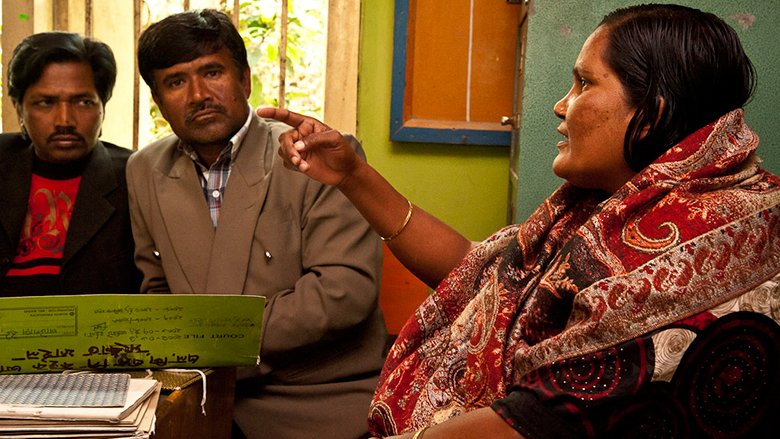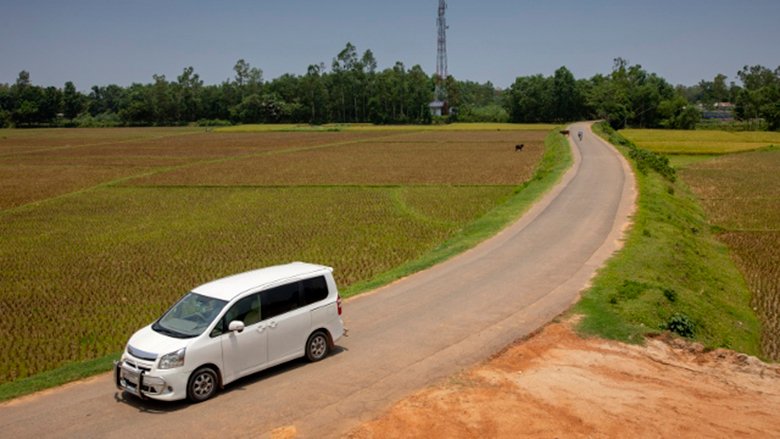Challenge
Previously, intergovernmental fiscal transfers to UPs lacked transparency, predictability, and efficiency. The transfers were made through an intermediate administrative level, Upazila Parishads , with high transaction costs. The grant funding pool was determined by Bangladesh’s central government in an ad hoc and opaque manner. The rules and conditions that governed the allocation of funds among UPs were not equitable and were not used as an instrument to incentivize improved governance, accountability, or performance. The degree of discretion for using the funds was conditional and often funds were earmarked for certain expenditures only. This cumbersome process resulted in delays in the transfer of funds, and the potential for manipulation of fund flows through political and institutional interference, which in turn resulted in the unpredictability of funds at the local level.
Approach
The Local Governance Support Project 3 (LGSP3), approved in 2017 as the third phase in a long-term reform program, was designed to overcome these challenges. To institutionalize fund transfers to UPs, it was imperative to establish a formula-based intergovernmental fiscal transfer system. The key features of the system were: (i) formula-based Basic Block Grants (BBGs), based on population and area, transferred directly to UP bank accounts from the central government in two tranches per year; (ii) ensuring consistency with GoB’s Medium Term Budgetary Framework (MTBF) by announcing in advance three years’ indicative BBG ceilings to facilitate planning; (iii) annual financial audits and performance assessments of all 4,550 UPs conducted by private audit firms, as a condition for access to funds; (iv) performance-based grants to incentivize UPs to improve performance in governance, accountability, and financial management; (v) full discretion in the use of funds that allows local expenditure and investment priorities to be determined by communities, within the parameters of their legal mandate; and (vi) the flexibility to roll over unspent balances of BBGs/Performance-Based Grants (PBGs) to subsequent fiscal years.
The key policy objective underlying LGSP3 is the institutionalization and mainstreaming of Basic Block Grants, based on the successful UP grant reforms introduced through LGSP1 and LGSP2 over the last decade.
Results
The project has so far attained the following specific results:
- 115 million people across the country benefited from enhanced governance and service delivery.
- All 4,500+ UPs get annual financial audits and performance assessments for improved financial accountability.
- LGD is taking an active role in the management of BBG disbursements and UP audits.
- 30% of funds go to schemes prioritized by women, through over 400 functional Upazila Women's Development Forums.
- As of FY 2019-20, BBGs in FY 2020-21 were fully funded by GoB’s budget.
- BBGs for FY 2021-22 are included in the LGD Annual Development Plan (ADP) for FY 2021-22 and in the draft LGD Medium Term Budget Framework (MTBF, from FY 2021-22 to FY 2023-24).
- UP Development Assistance Guidelines have been approved by Finance Division and await distribution to the stakeholders.
- LGSP3’s Management Information System (MIS) is in the process of being integrated into LGD’s overall MIS.
- 23,000+ UP functionaries participated in core training
- 72% of the schemes were selected by women in FY 2020-21
- 88% of female beneficiaries agree that UPs are meeting local priorities (compared to baseline of 55% in March 2017)
- 90% of male beneficiaries agree that UPs are meeting local priorities (compared to baseline of 66% in March 2017)
Bank Group Contribution
The World Bank, through the International Development Association (IDA), provided a loan of US$300 million to finance this project.
Partners
The Government of Bangladesh (GoB) provided US$396.13 million in counterpart funds.
Beneficiaries
The project has had a particular impact on the population of the 4,550 UPs, estimated to be about 115 million people, and about 0.5 million in the participating Pourashavas, or municipalities). Indirect beneficiaries include UP and Pourashava functionaries and district and central government agencies managing UP grants and audits.
Moving Forward
While the full institutionalization of BBGs appears to be on track, the next crucial step for the project is to ensure that national-level stakeholders have internalized the entire cycle of actions associated with the management and administration of BBGs. The Project Management Unit is drawing up plans to provide national stakeholders with a comprehensive overview of the BBG fiscal transfer system, a schedule for actions needed, and a clear definition of which agencies and units are responsible for which actions. National stakeholders include LGD UP Wing, LGD Audit Wing, LGD Finance Office, LGD MIE Wing, Finance Division of the Ministry of Finance, Programming Division of the Planning Commission, Ministry of Public Administration, Office of the Comptroller & Auditor General, and Institute of Chartered Accountants of Bangladesh.


